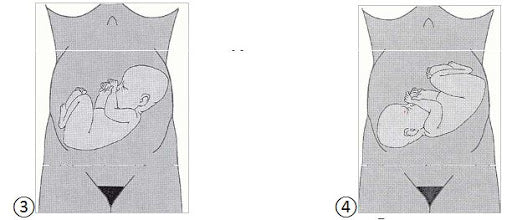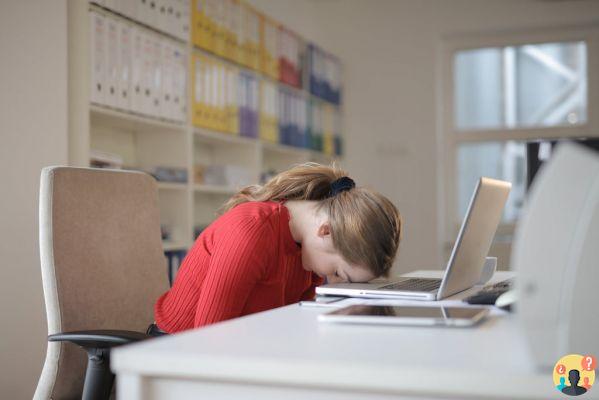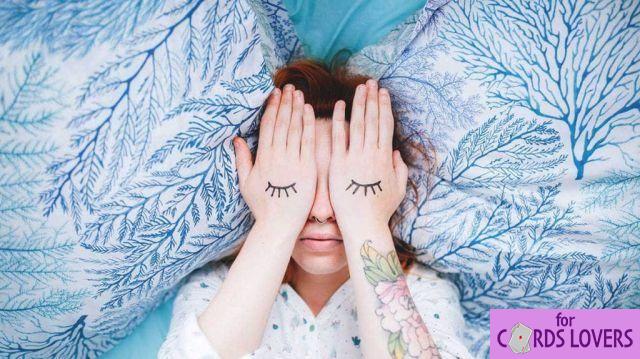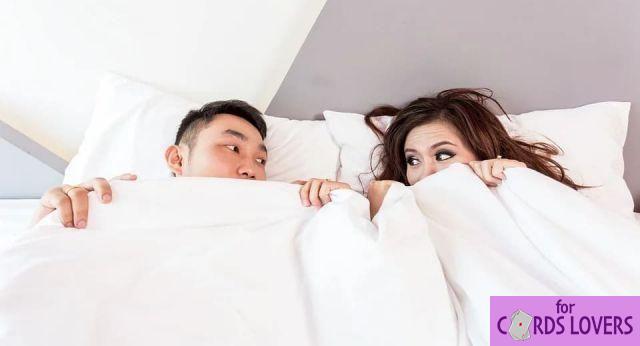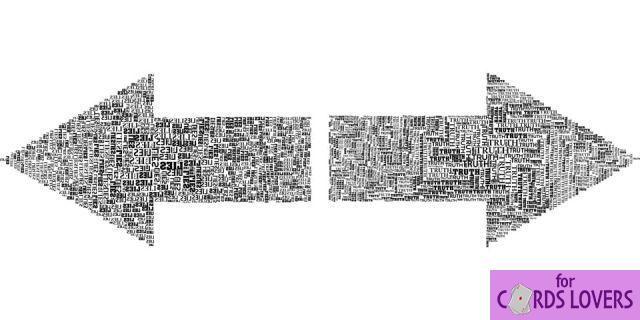
With the increase in cannabis consumption in France and the rest of the world, many people are trying to find out how to fall asleep without a joint.
In fact, weed or cannabis has been used in cases of anxiety attacks, depression and of course sleep disorders.
Regular cannabis users often describe this compound as inducing sleep or helping people fall asleep and stay asleep when they've previously struggled to establish a routine.
However, an increasing number of cannabis users suffer from insomnia and sleep disturbances after quitting these substances.
People seem to have trouble falling asleep or staying asleep if they haven't used cannabis before.
Indeed, the THC improves sleep wave cycle and induces deep sleep.
Therefore, in the following paragraphs, we will share the recommendations and methods you can use to fall asleep seamlessly. Let's start!
How to fall asleep without joint and why is it so difficult
Before getting into the actual methods, it is important to understand why it can be so hard to fall asleep without cannabis.
After you quit smoking weed, it's safe to say that your body has probably become addicted and expects THC to induce sleep.
So, now that there's no THC in your system, the body doesn't recognize the signs that it should start inducing sleep on its own.
Of course, your body now needs enough time to establish a new routine and start functioning again without THC and cannabinoids.
It's estimated that it can take up to two weeks to get used to falling asleep without cannabis, and you're at risk of developing serious sleep disorders, like insomnia, in the meantime.
That is why it is important to act in time and start practicing prevention methods.

The 6 Best Ways to Fall Asleep Seamlessly
1. Physical activity like running
Studies have shown that regular physical activity and exercise can help your brain establish a regular, healthy circadian rhythm, which regulates the sleep-wake cycle. Physical activity is one of the most common ways to combat insomnia and sleep disturbances, whether you're a cannabis addict or not.
Not to mention, it helps you undo all the damage weed has done to your brain, which means physical activity improves cognitive function and helps your body relax on its own. Chances are you think that relaxation only comes from smoking joints, so this could be important information for you.
Note: We recommend trying running, or if you're on the “colder” side, you can try yoga or tai chi. No matter what physical activity or exercise you choose, it will surely help improve your mood and a bit of sport will signal your brain that it needs to rest, hence fall asleep.
Along with all these benefits, physical activity will also decrease the chances of becoming anxious and depressed after stopping cannabis use, which is also good to know.

2. A pleasant and clean sleeping environment
People tend to overlook the importance of a cool, clean sleep environment when discussing sleep issues. Of course, you may not see the connection between stopping joint use and clean sheets, but listen up.
The place where you sleep should be clean, fresh and comfortable enough so the chances of you becoming agitated and irritated are slim. Because you're having trouble falling asleep with the withdrawal symptoms from cannabis substances, a clean, comfortable place to sleep will only help and calm you down. It might also help your brain sleep, increase melatonin production, and relieve stress.
On the other hand, if you don't really change your sheets regularly, clean the bedroom, or open the windows to get some fresh air, you'll have a hard time falling asleep with or without a joint. So, establish a cleaning routine for your bedroom and keep it clean and comfortable. Think to yourself; is this somewhere i want to sleep or where i would let a guest sleep? If the answer is “yes”, you are doing good. If the answer is "no", you need to clean up.
Our premium sleep mask makes it easier to fall asleep

3. How to fall asleep seamlessly with healthy nutrition
Studies have shown that cannabis users tend to have a diet higher in carbohydrates, fats and processed products, which could later cause health and weight problems. So, now that you've stopped using weed, it's time to treat your body to the nutrition it deserves. You should aim for food that naturally encourages melatonin production and helps your brain sleep.
Note: We recommend increasing your fruit intake (bananas, watermelon, figs, avocado, cherries) as they act as a natural source of melatonin as well as magnesium and other sleep-inducing compounds.
Additionally, also increase your intake of vegetables (kale, spinach) as it is full of vitamins, amino acids and of course melatonin. As for the other food groups, you should also increase the consumption of nuts, white meat, dark chocolate or even popcorn, as all of them are natural sources of serotonin, melatonin and magnesium.
4. Establish a sleep routine
By establishing a sleep routine, you increase your chances of falling asleep seamlessly. Because there's no more cannabis to dictate your sleep-wake cycle, you have to do it yourself. What we recommend is the following;
- Take a warm bath or shower - NIH studies have shown that by taking a hot bath or shower before bed, your brain is more likely to produce more melatonin and induce sleep. Because there is a change in body temperature during and after taking a hot shower, your body temperature drops as the water evaporates. At this point, your body is reaching the temperature it needs to sleep. Plus, you'll generally feel more relaxed and calm after a hot shower, so you should know how to fall asleep seamlessly.
- Avoid mental stimulation at bedtime - this means that you should stop working at least two hours before bedtime and not watch TV or scroll through Instagram on your phone. Excessive exposure to blue light before bed decreases your chances of falling asleep. Your brain receives this as a signal to stay awake, increases stress levels and becomes fully engaged and stimulated. To prevent this from happening, put away your phone, laptop, computer, or TV, and read a book before bed instead.
- Listen to music - now we recommend staying away from phones, gadgets and monitors before bedtime. However, if you have a player, radio, or anything that can play music for you, use it to help you fall asleep. Classical music, for example, is said to help calm you down and improve the quality of your sleep. Studies, in general, have confirmed that soothing, relaxing and peaceful music affects the nervous system and not only helps you fall asleep but also helps you stay asleep and will ensure you don't wake up frequently during the night.

5. Take Joint-Free Sleep Supplements
Now that you've quit smoking, you shouldn't turn to other sleep-inducing drugs. However, melatonin supplements are thought to be excellent in cases where people stop using cannabis and are now experiencing withdrawal symptoms and trouble sleeping. Your brain produces melatonin on its own, however, after consuming cannabis there may have been some changes in the amount of melatonin produced.
So now that there's no more THC to induce sleep, the brain needs help, perhaps in the form of melatonin supplements.
Note: Of course, before you go for melatonin supplements, be sure to consult a medical professional, explain your case, and see what they think about supplementation for withdrawal-induced sleep disturbances. weeds. If melatonin supplements don't help, try melatonin-theanine supplements or even gummies, which might just be the addition your body needs.
6. Avoid alcohol and other substances
Just because you've quit smoking doesn't mean you should now turn to other substances to ensure a good night's sleep. Added substances, such as alcohol or even anti-depressants, could complicate things for you and aggravate your already disturbed circadian rhythm. Alcohol may help you fall asleep faster, but you won't sleep long and you'll keep waking up all night. Not to mention the restlessness, night sweats and morning hangovers you'll go through. Additionally, NIH studies have shown that drinking alcohol actually increases your chances of developing insomnia.
On the other hand, anti-depressants mess up your REM sleep and increase the time you usually take to enter deep sleep. Thus, you will not enter the sleep phase where your body recovers and normalizes the immune system and metabolism.
Even if you start practicing the above recommendations, it may take some time for you to return to a normal routine and sleep cycle. Until that happens, it's important to stay dedicated and persistent.
The final word
How to fall asleep without joint? Withdrawal symptoms will go away over time, so take the opportunity to build a healthy lifestyle, stay active, and eat healthy, fresh, wholesome food. Not only will you start to sleep better, but your overall mental and physical health will also start to thrive.










